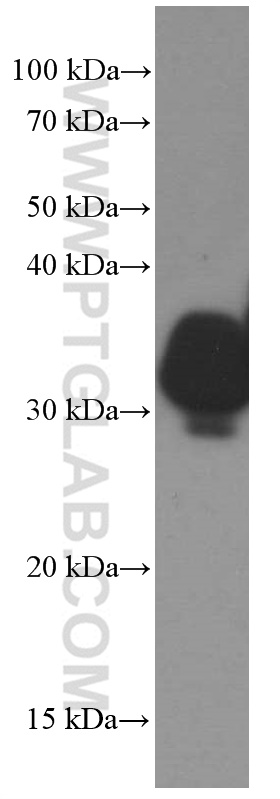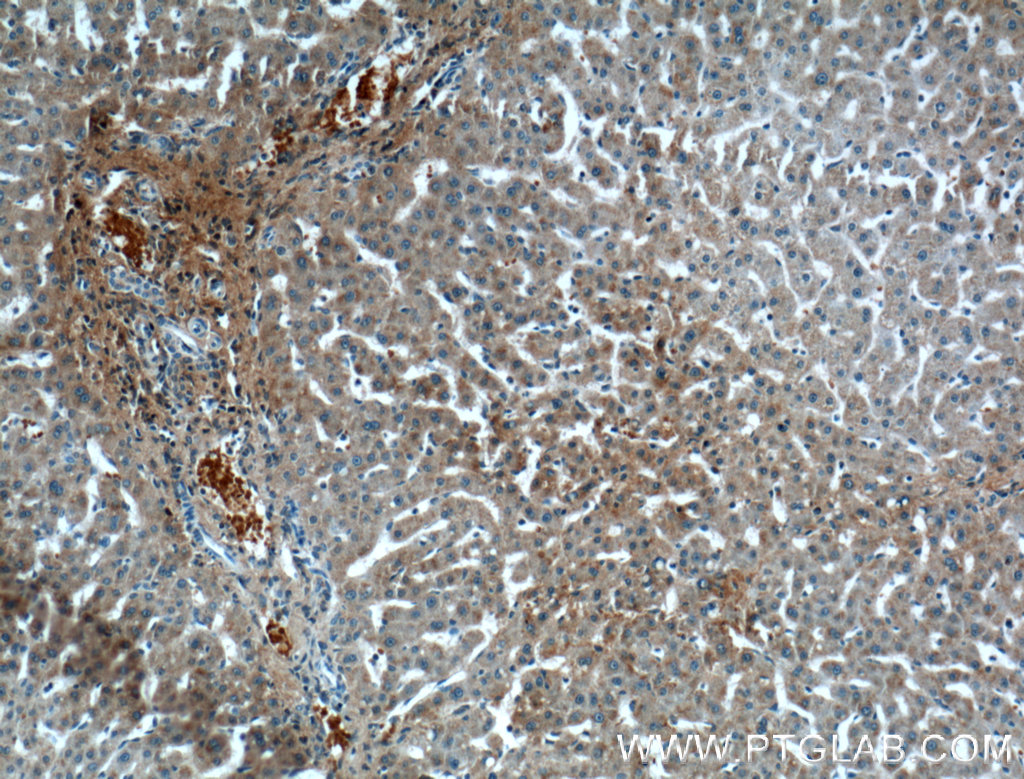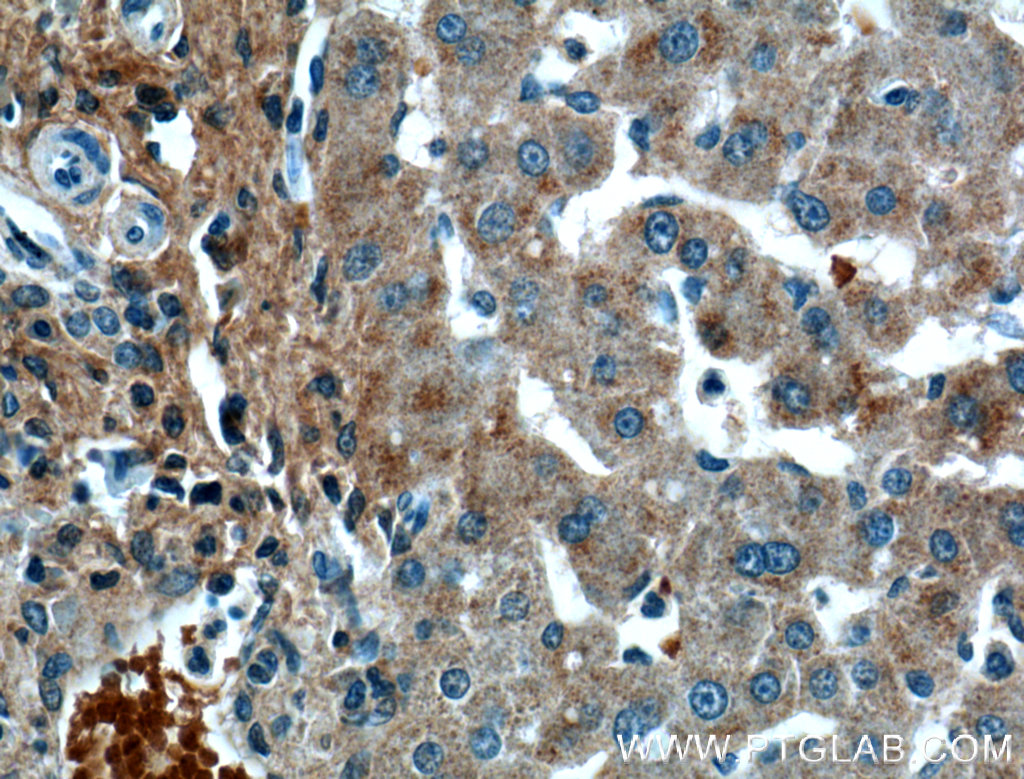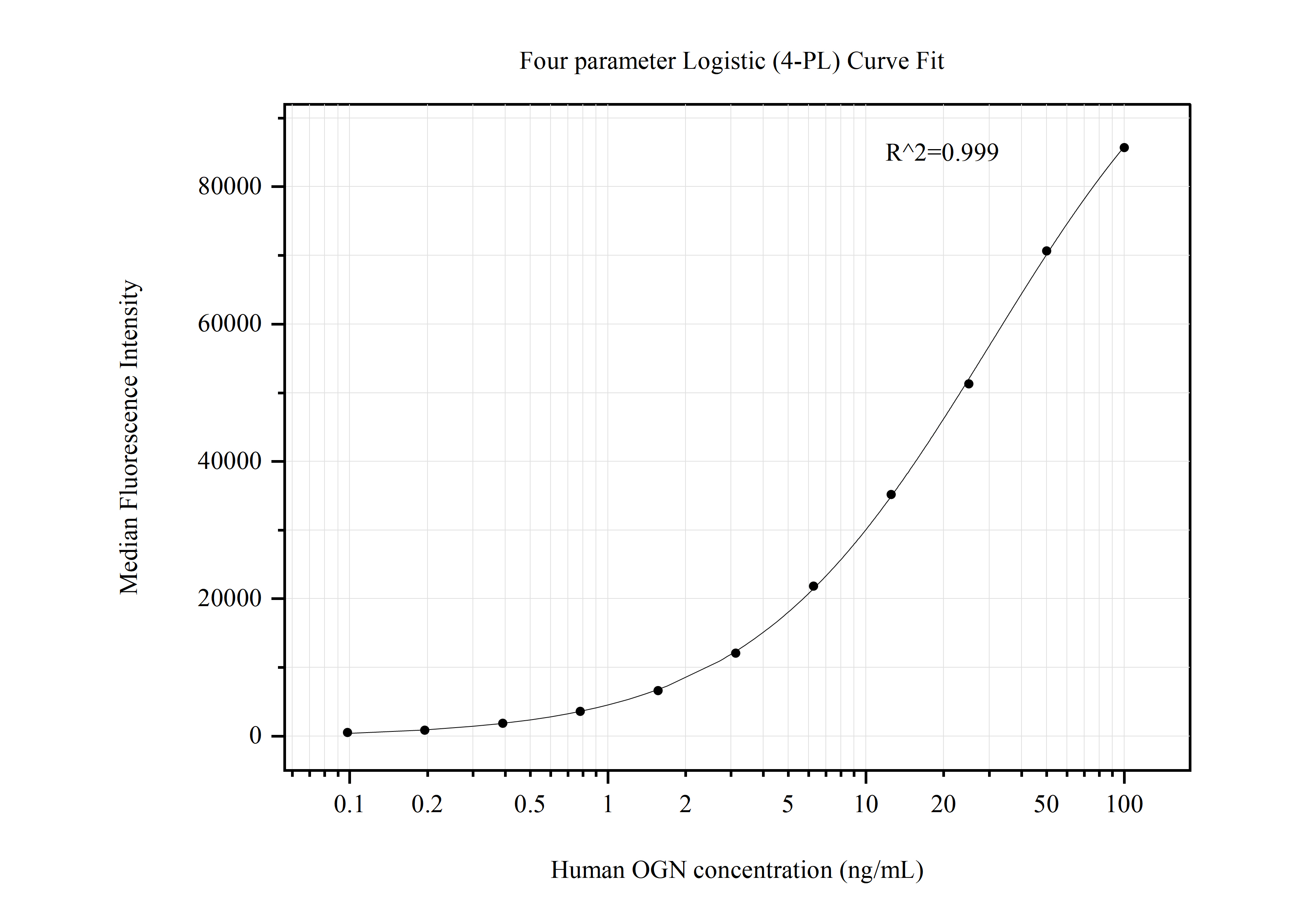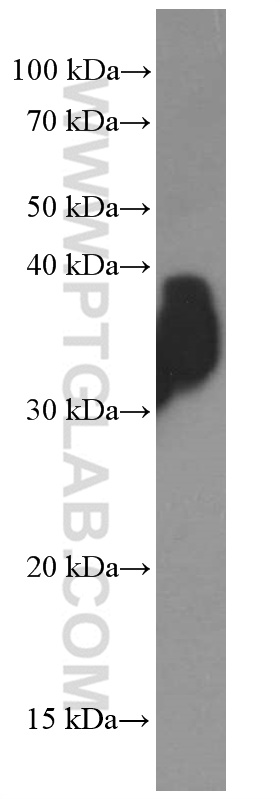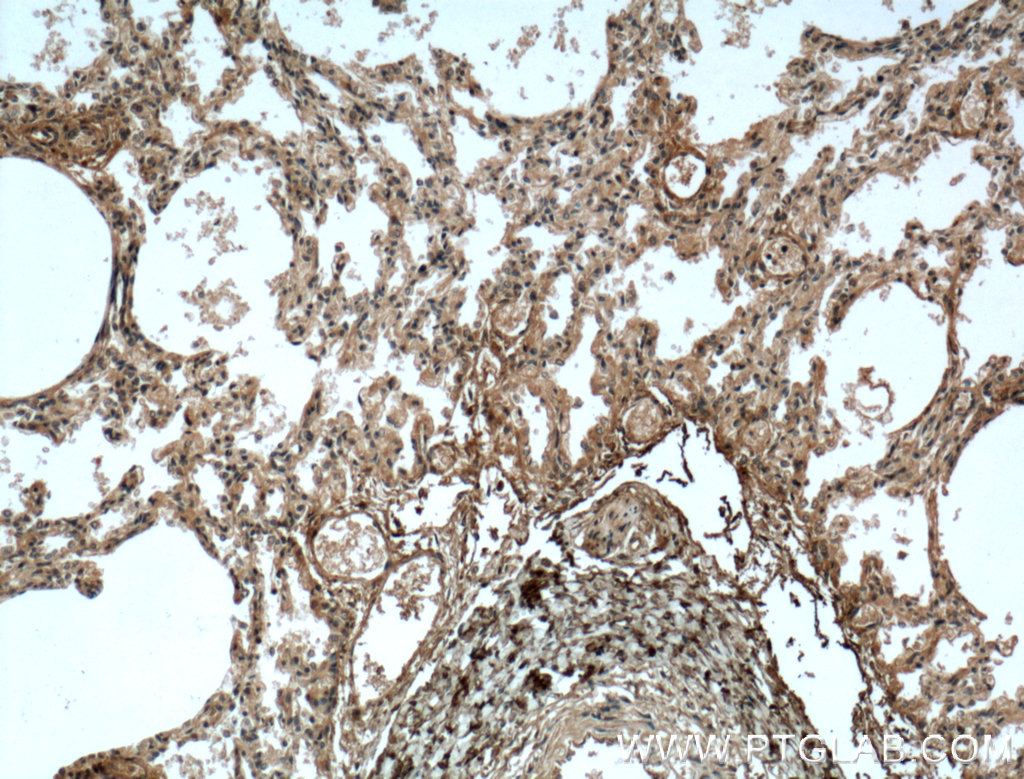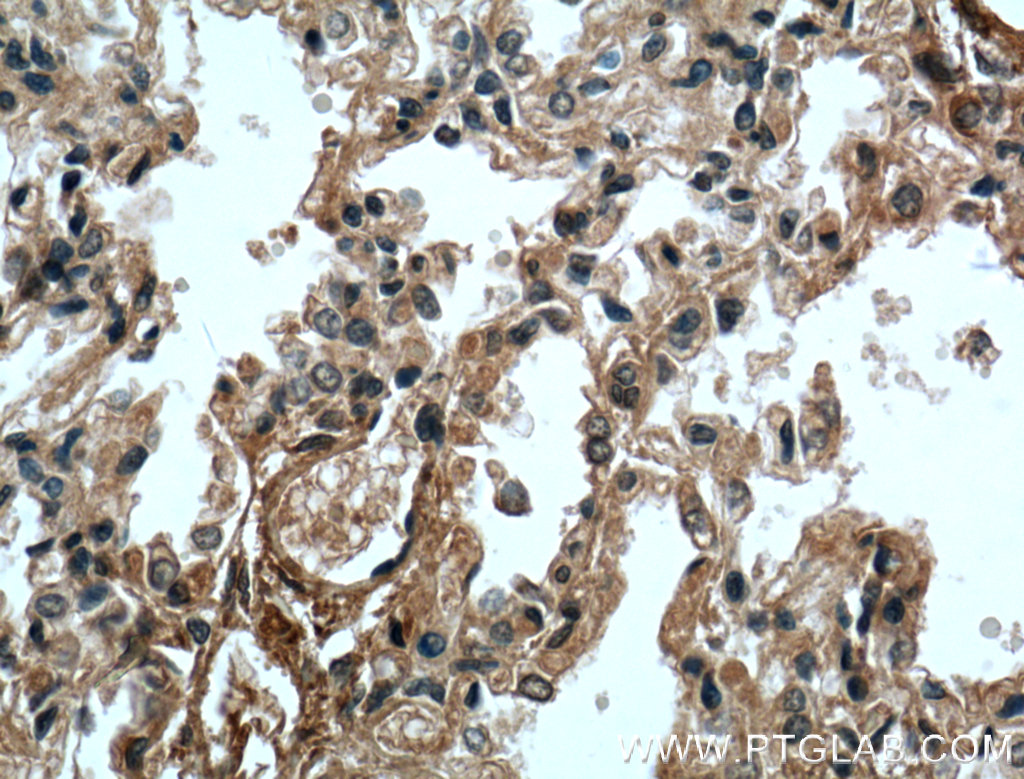OGN Monoclonal antibody, PBS Only (Capture)
OGN Monoclonal Antibody for WB, IHC, Cytometric bead array, Indirect ELISA
Host / Isotype
Mouse / IgG1
Reactivity
human, pig
Applications
WB, IHC, Cytometric bead array, Indirect ELISA
Conjugate
Unconjugated
CloneNo.
2A5F11
验证数据展示
产品信息
66382-1-PBS targets OGN as part of a matched antibody pair:
MP50723-1: 66382-1-PBS capture and 66382-2-PBS detection (validated in Cytometric bead array)
Unconjugated mouse monoclonal antibody pair in PBS only (BSA and azide free) storage buffer at a concentration of 1 mg/mL, ready for conjugation.
This conjugation ready format makes antibodies ideal for use in many applications including: ELISAs, multiplex assays requiring matched pairs, mass cytometry, and multiplex imaging applications.Antibody use should be optimized by the end user for each application and assay.
| Tested Applications | WB, IHC, Cytometric bead array, Indirect ELISA Application Description |
| Tested Reactivity | human, pig |
| Immunogen | OGN fusion protein Ag3484 种属同源性预测 |
| Host / Isotype | Mouse / IgG1 |
| Class | Monoclonal |
| Type | Antibody |
| Full Name | osteoglycin |
| Synonyms | Osteoinductive factor, osteoglycin, OIF, OG, Mimecan |
| Calculated Molecular Weight | 298 aa, 34 kDa |
| Observed Molecular Weight | 30-40 kDa |
| GenBank Accession Number | BC037273 |
| Gene Symbol | OGN |
| Gene ID (NCBI) | 4969 |
| Conjugate | Unconjugated |
| Form | Liquid |
| Purification Method | Protein G purification |
| UNIPROT ID | P20774 |
| Storage Buffer | PBS Only |
| Storage Conditions | Store at -80°C. The product is shipped with ice packs. Upon receipt, store it immediately at -80°C |
